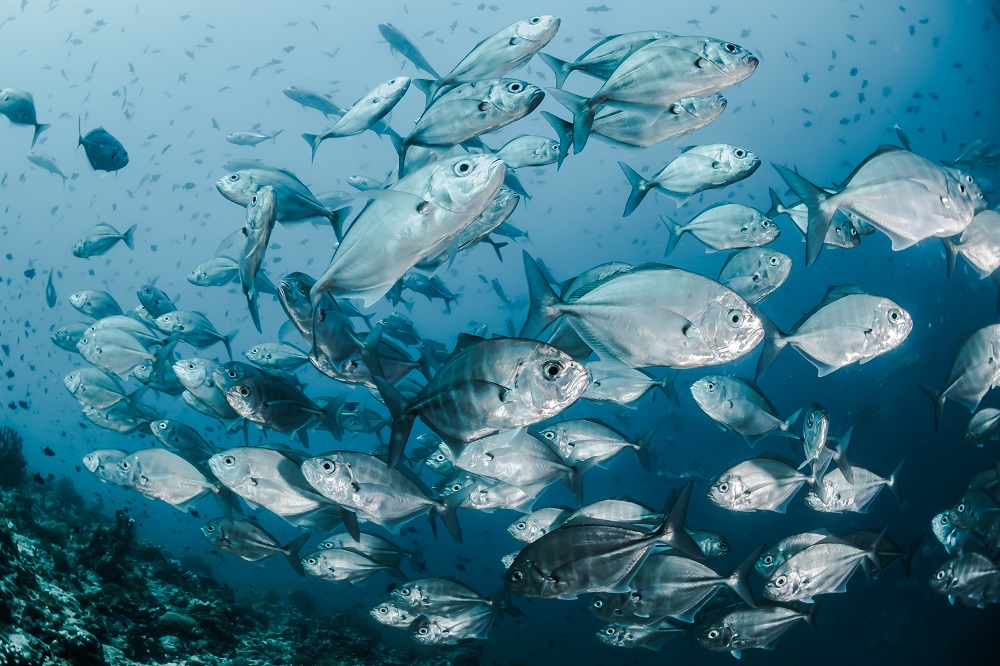
The microplastic crisis is well documented worldwide. A knowledge gap exists for impacts on livelihoods of coastal communities with traditional marine economy-dependent lifestyles. This pilot study across three of the world’s oceans will focus on several locations in the coastal waters of eastern USA, western Australia, United Kingdom, Norway, Ghana, Taiwan and Canada. Coastal communities dependent on traditional fishing-dependent livelihoods for generations represent a wide array of cultural, economic, and social gradients that will be useful for establishing new collaborations and professional networks, as well as monitoring a global problem under a framework that recognizes our connected oceans.
The long-term goal of this study is to investigate the ecological, social, and human wellbeing implications of microplastic contamination on a global scale using fish as indicators of accumulation and eventually modeling of ecosystem processes to trace contaminant flows and understand exposure risk in coastal communities. This research will build on two existing partner relationships and new locations to engage a diverse group of stakeholders (fishers, scientists, and managers) by facilitating collaborative initiatives that support community engagement and collective actions that improve knowledge on the risks of microplastic contamination, and best practices that foster behavior changes. We will examine policy alternatives and potential climate effects in relation to ecosystem functioning and exposure risk and develop engagement tools for informing coastal communities. The eventual goal of the collaborative effort is to understand flows and human exposure routes through simulations using ecosystem modeling.
The expertise, experiences, and institutional diversity of this network presents unique opportunities to coordinate future research to address common concerns and problems at spatially explicit and global scales. This network aims to learn from and build on individual expertise, towards coordinating research and systematic monitoring of critical variables and linkages across aquatic ecosystems and coastal communities, advancing science, and understanding of transformations in social-ecological systems, and risks of microplastics contamination, exposure in wild fish, and human wellbeing and linking these efforts to the broader climate crisis and a shift away from petroleum-based economic systems. During the project, an interdisciplinary research team will be brought together to develop a shared vision and research strategy to investigate socioecological microplastic-related impacts and human health concerns from seafood consumption, determine a research framework, and collect data to inform a perspective article and new proposals.
Coastal communities around the world are facing complex challenges caused by climate change including rising sea levels, urbanization as well as environmental, and socio-ecological changes. Freshwater and coastal systems are under increasing threats that impact human well-being and biodiversity through environmental degradation caused by climate impacts and greenhouse gas pollution, mismanagement and overuse of plastics, and contaminants, resulting in the disruption of the environment-food-human nexus.
As humans have entered a new era shaped by the COVID-19 pandemic, sustainable recovery requires understanding impacts on livelihoods, health, and access to resources in a changing climate. Fish are a globally important source of nutrition, but also an important exposure route for contaminants, including microplastics (and contaminants adsorbed to, or used within, plastics). The global pandemic has added environmental costs, particularly through plastics in disposable personal protective and medical equipment. As the global effort to recover sustainably from the crisis begins, understanding the fate of petroleum-based pollutants is a critical issue. It is directly linked to the oil economy contributing to climate change and of critical concern for food safety and security related to the widespread dependence on fish, both freshwater and marine species, that can act as conduits for contaminants into human populations. Marine and freshwater fishes can serve as the foundation for ecological health modeling.
The specific objectives of this project are to:
- Engage partner institutions in a process to identify key species in local ecosystems and determine those that would provide comparative value across coastal regions in the USA, Norway, United Kingdom, Ghana, Canada, Australia and Taiwan.
- Samples will be processed (Ribeiro et al. 2020) at the Norwegian Institute of Marine Research in Bergen to provide a pilot dataset for proposals and a high-visibility policy perspective paper on global patterns.
- Identify modelling framework to understand ecosystem functioning to examine contaminant flows through food webs and into heavy consumed fish species.
- Examine perceptions in exposure risk and cultural norms associated with plastic and contaminant waste in the unique cultural settings.
- Convene a collaborative network to develop linked predictive models and simulations of climate change, fisheries, habitat loss and contaminant flows across the freshwater-marine nexus through ecosystem interactions.
- Establish an ongoing collaboration through cooperative agreements among institutions to support education and training of visiting graduate students and postdoctoral scholars in the field of global health and contaminant biology, and to explore and develop novel analytical approaches that link freshwater and marine ecosystems.